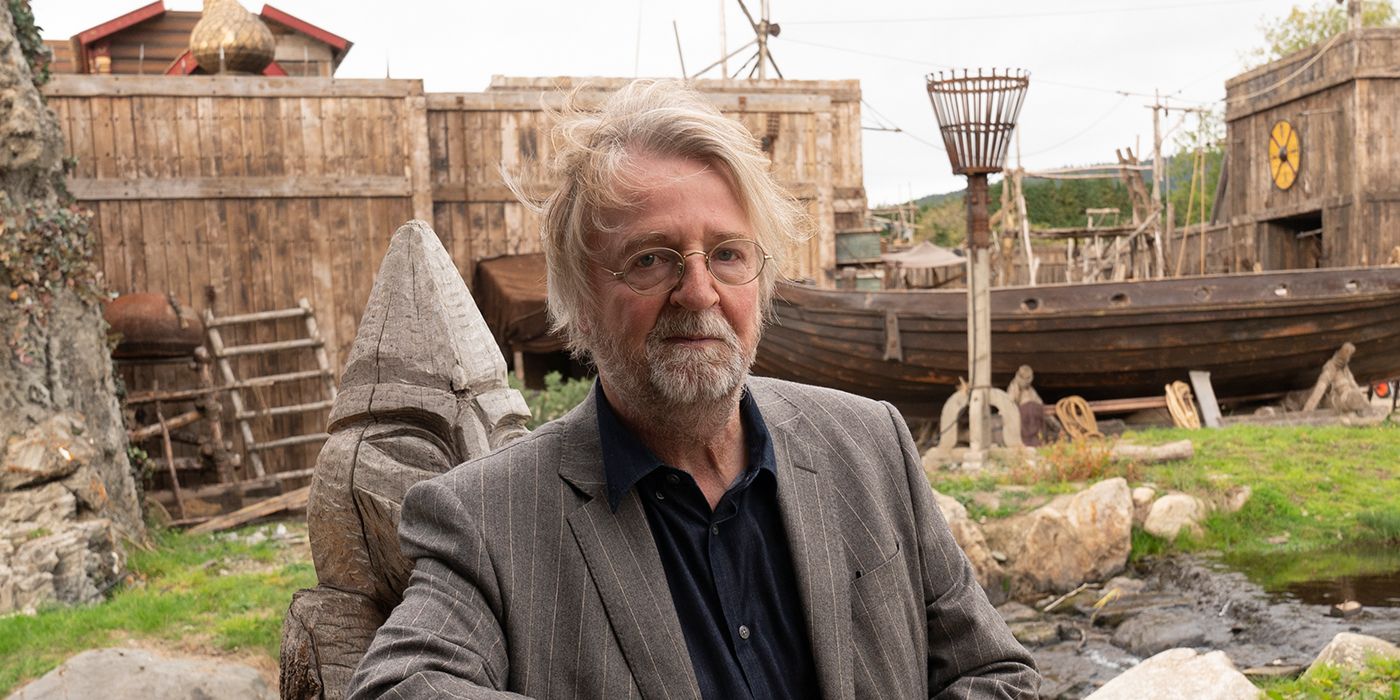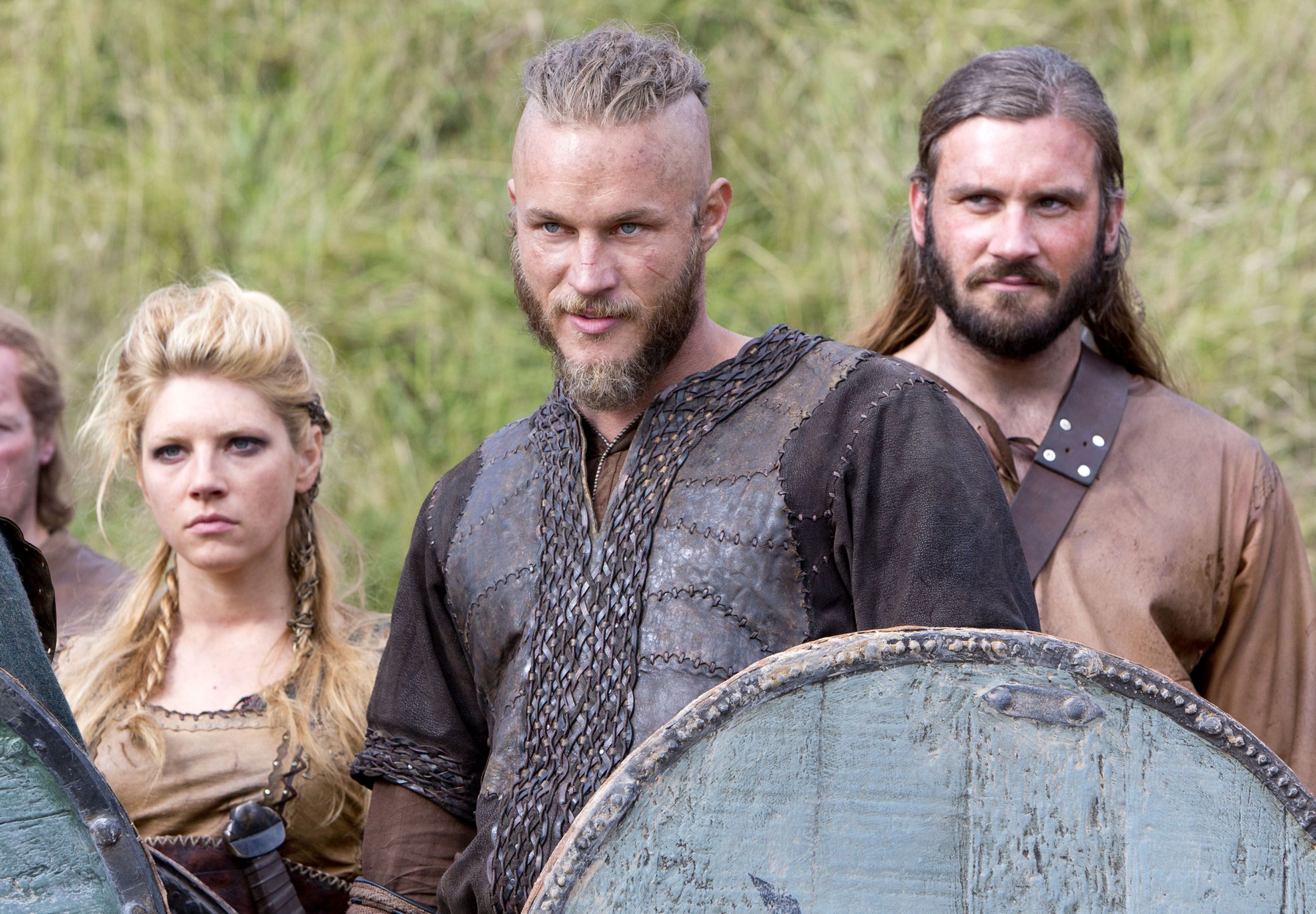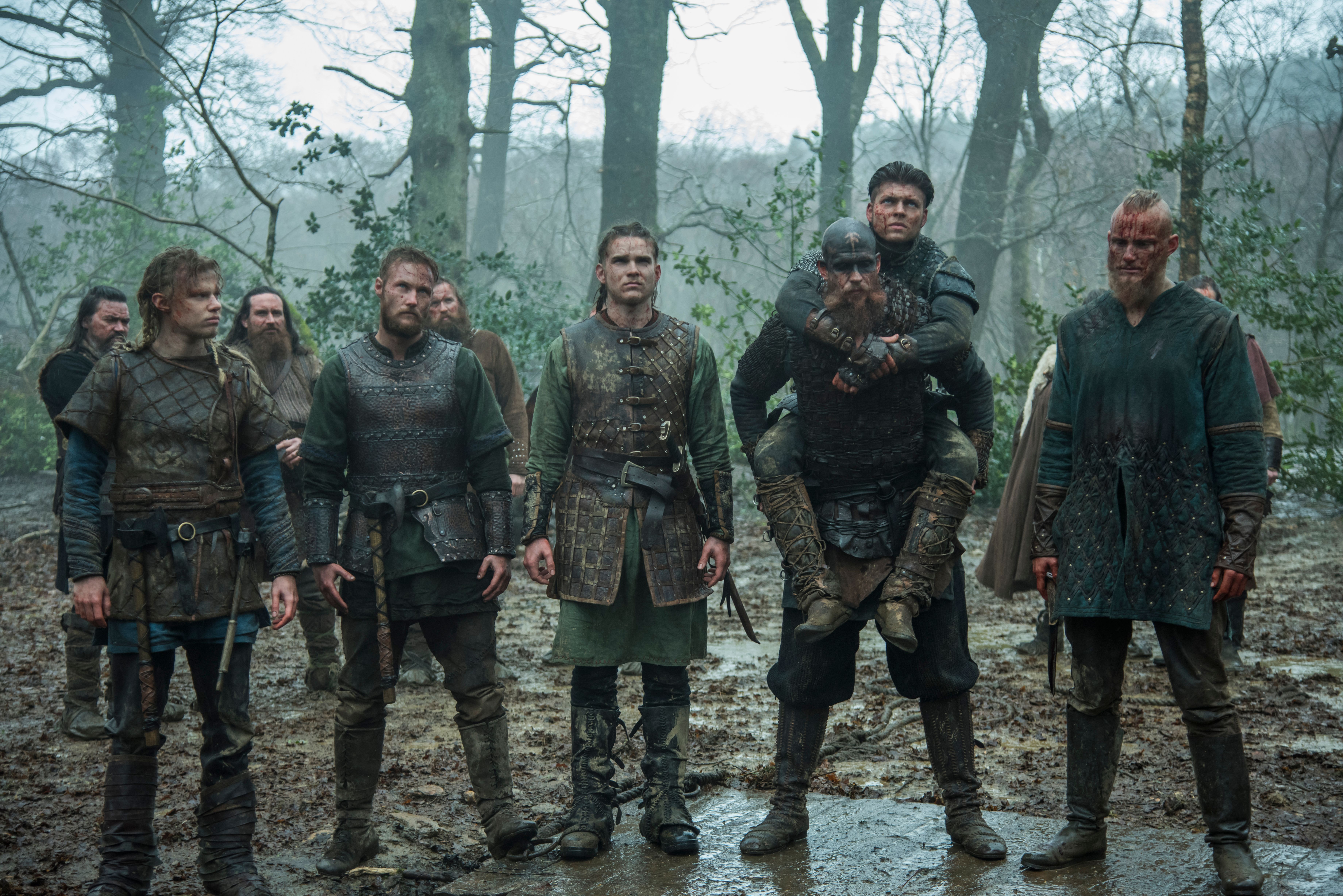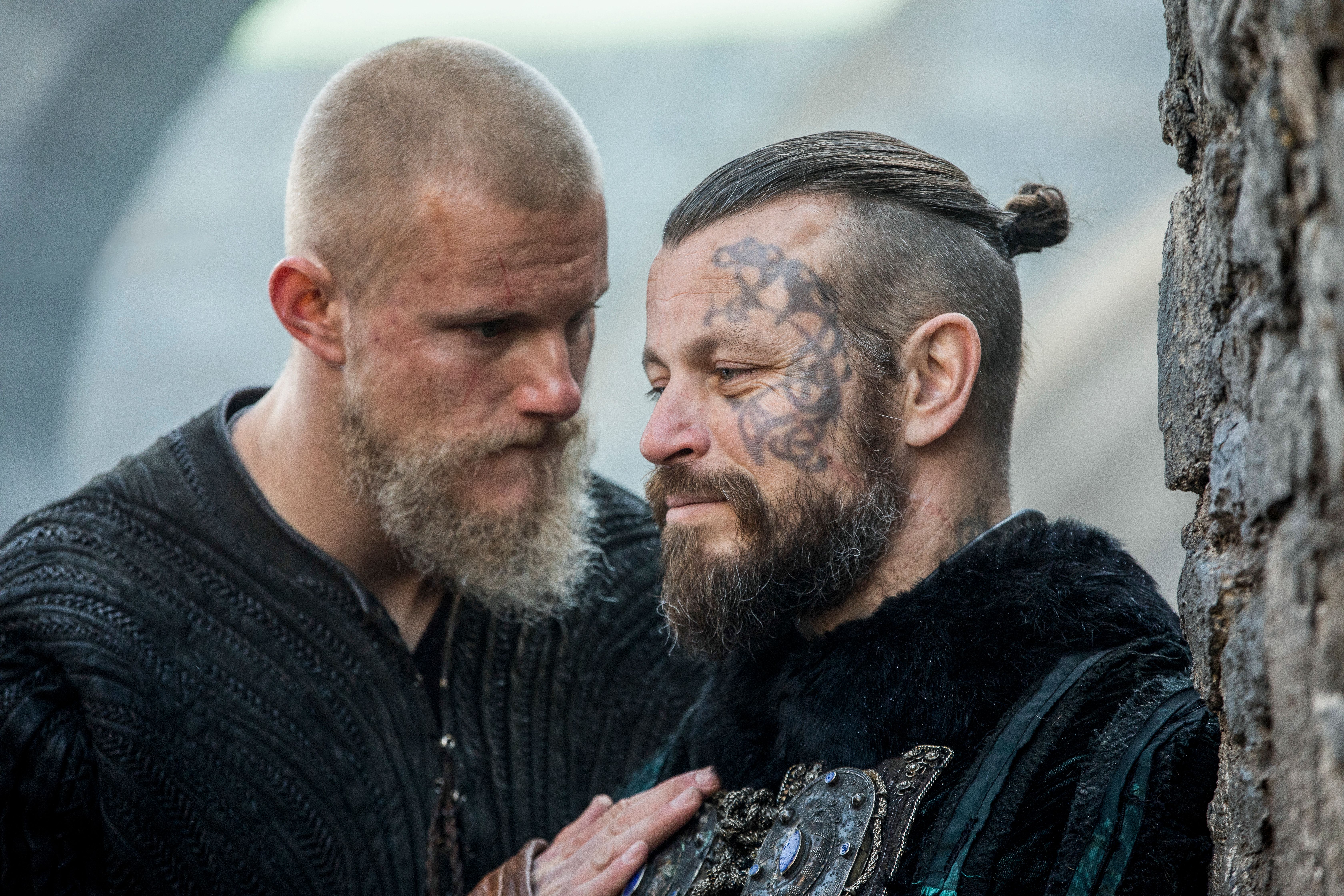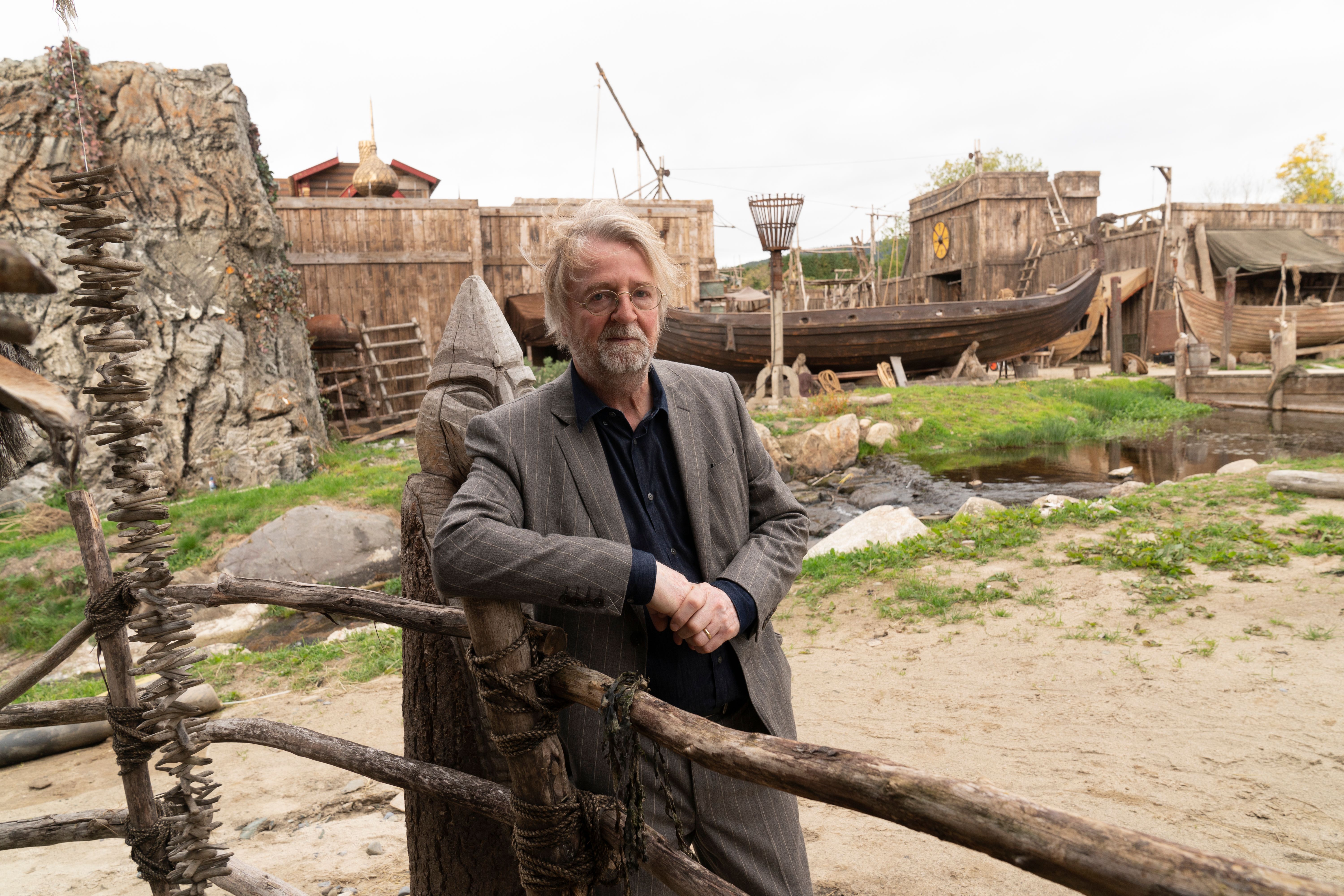With the final season of the TV series Vikings now streaming on Amazon Prime Video, I recently spoke to the show's creator and writer of every episode Michael Hirst about making the hugely successful series. During the wide-ranging conversation he talked about why he wanted to end the series and how it was his decision, how he knew early on that Vikings would be the saga of Ragnar and his son, why he got a lot of warnings when he decided to kill off Ragnar, what it was like going from 10 episodes to 20 episodes a season, the relationship between the budget and storylines of the series, why the final season was his favorite, and more.
Finally, Netflix is making a sequel series called Vikings: Valhalla and it’ll be streaming later this year. The series was created by Jeb Stuart and is set 100 years after the end of Vikings. Be sure to check out everything Hirst told me about that new series, including what it’s about and where they are in the filming process.
Collider: I'm one of those people that watched Vikings since the beginning. So I just want to say I've really enjoyed your work.
MICHAEL HIRST: Thank you.
So I'm going to start with a question or two that hopefully you haven't been asked yet. What TV series would you love to guest write?
HIRST: Well, I don't watch many TV shows, but I did watch an episode of this chess show-
The Queen's Gambit?
HIRST: The Queen's Gambit I think it was called, yeah, which I thought was just remarkably clever. I'm not sure I could write it, but it did show you how you can turn something even like chess into dramatic TV. It's a remarkable piece of work. But I have tried deliberately to avoid watching too much drama on TV, because I don't want to be affected by it. I never watched Game of Thrones for example, because I never wanted anyone to say, "You borrowed that from Game of Thrones." or "That's like Game of Thrones." So I didn't want to be effected by it. Not that it was similar, because it was a fantasy show. But still, you know what I mean? These things can come into your head when you don't expect them to come into your head.
So I have strange, eclectic viewing paths that I still kind of watch old films. During the first lockdown it was great, because we bought a big screen and I screened most of my favorite films as a kid, Chinatown or whatever. In the show I reference actually quite a lot of the movies I like, so there are little hints here or there of movies. And there are plenty of... I allude to some of my favorite poets often, or a line by John Lennon or something. So I sort of smuggle these things in which were great influences on my life and my writing.
So jumping backwards, when you pitched the idea for the series, did you have any idea at the beginning of how many seasons you wanted to do?
HIRST: No, I didn't. All I knew was where it was going to end if I had the opportunity take it there. I honestly... Most shows are canceled after the first season. So I didn't have... I was just pragmatic about it. I was thrilled that MGM and then History had picked it up for starters. I had a sort of big menu in my own mind about what I want to do. A lot of that was to do with overturning a lot of cliches about Viking life and about the Vikings generally. So I had plenty to get on with, but each time they... Yeah, and I suppose, actually, I was aware that audience figures were growing exponentially and that it was working. But I was still kind... I was pretty superstitious about how far I could go.
Although I said from the beginning that this was going to be the saga of Ragnar and his son, when I finally announced to everyone that this was the season I was going to kill Ragnar I got a lot of warning, certainly from the Americans, that was a dangerous thing to do. And that most shows, who lose their lead character, don't continue successfully. There've been a lot of big moments along the way, but I could never in my wildest dreams have anticipated that we would get to six seasons and 89 episodes, which is what we finally did.
Was it your decision to end the series at the end of the sixth season? Or was it a mutual thing with the network?
HIRST: No, I told them when it was going to end. I knew that the ending would be the discovery of America, and Newfoundland. And that was what I always planned. I have to say realistically that having spent every day, and sometimes some of the night, for seven years writing, and thinking, and living this show that I needed to conclude it. I needed to end the saga. But more importantly, I needed to wrap it up. I needed to conclude these last storylines in ways that would be satisfactory and satisfying to an audience. I didn't want to cheat anyone. I didn't want to cheat the actors, the characters, or the audience. The big challenge to conclude all the various storyline with justice, satisfactorily and emotionally satisfactorily, which involved me having to kill off some of my most beloved characters. So it was a very, very emotional experience writing these last 10 episodes.
I'm very curious, a lot of people who are going to read this are not really going to understand what it takes to make a successful television series. But your first few years you were doing 10 episodes, and then you jumped to 20 episodes. When you first were told or asked, "Hey, do you want to do 20 episodes a season?" What was that initial reaction? Because that's a hell of a lot of work.
HIRST: Yes. And they also said, "Maybe you need a writers' room to help you." I had no experience of a writers' room. But I talked to other writers, one or two other writers, who did have that experience. They said, "Well, there are good things about it. But you end up really being a psychiatrist more than a writer when you're dealing with a bunch of other writers. It's not easy." And I said, "Well, I don't think I want to do that. I just want to concentrate a hundred percent on the story. I'm a storyteller, that's what I do."
At that stage I was so punch drunk with the show. I was surrounded by wonderful people, wonderful creative people, and a team of people who were remarkably supportive, this is the crew and all the departments. We had new directors all the time. Each director just did two, sometimes three episodes. I would spend a long time talking to them, and then with the actors. So I was in the world. I was in a privileged world, I felt. All these people helped me to shape the show and the episodes. So I was having a truly creative, extraordinary time. I can't really imagine a writer not wanting to be in that situation. But it was my wife who pointed out, probably sometime during the sixth season when, as you say, we were doing 20 episodes, so it was grueling. I mean I was writing all the time. She said, "It's kind of killing you. I can see that. I know it gives you enormous joy. But it’s your full time life. This show is your life." Which it was. And my wife was pointing out that it was very selfish of me to do that. So I knew that the sixth season would be the last, but I still had to end it properly. I still had to dig in, I suppose at whatever cost, and finish it as I wanted it finished. As I say, I had huge support from MGM and History.
By that stage everyone was pulling, or pushing, or whatever, in the same direction. There was no friction. And that kind of friction happens so often in TV dramas I think, on production, that I couldn't have devised, I couldn't have done what I did if there'd been friction inside the production or around it. There just wasn't, and I'm not sure that that will ever happen to me again. It was happenstance and it was great good fortune. I was just surrounded by people who loved what they were doing and loved the show. So it couldn't have been better.
How did the writing process get impacted by the budget of the series? Were you always sort of like, "Okay, every episode I need to have two action set pieces or four minor action set pieces."? How did that all sort of get figured out in terms of storytelling while also managing the budget?
HIRST: Well, part of the answer to that is that I wasn't the kind of showrunner like the American showrunner who deals with the budget. I had nothing to do with the budget, and I didn't want anything to do with the budget. Production dealt with the budget. What happened was I was freed of any initial concern for how expensive things were. I would just write an episode. And it might have... I discovered that the Vikings, when they were going up river to maybe attack a city or something, if the river was blocked they simply dragged the boats onto the shore, dismantle them partly, and hauled them across the mountains, and rejoined the river on the other side of the blockage. And I said, "I've read this guys and I know probably we can't afford this. But can we do something similar? Can you work that out?” And a month later I was up a mountain watching the whole... Actually hauling a Viking longship up a mountain. It was extraordinary.
I just went ahead and wrote things, and then I would get a little sort of tap on my shoulder. Someone would say to me, "You can't have two battles in this episode. You can have one. You can have one battle, and maybe one significant fight or something like that." It was extremely sort of practical. So I said, "Okay, all right, well I know what I can do, and I know a way around that." Because sometimes it helps the writing process to have parameters. You can come up with some good ways of doing things, some novel ways, some imaginative ways of doing something that you want to do.
So I never complained about the realities of production. And actually what happened sort of organically was that each season we got more money, and by the end the budget was double, more or less double what it had been when we started. But that echoed the storyline, because the story started with a small village in Norway, and it ended up with kingdoms. We were in different countries. Just like the Vikings, we've visited the Mediterranean, we've gone to Russia, we went to France. So the growth of the budget echoed absolutely the growth of the show. So I wasn't burdened. As I say, I didn't want to be. I didn't want to be burdened by too many practicality.
Did you end up having a favorite season or one that turned out a lot better than you were expecting?
HIRST: Well, I would say now that this final season is my favorite season. But then it's the closest one to me and I went through so many powerful, emotional experiences while we were making it. So it indelibly printed on my mind. I loved season one. I loved the introduction of the characters and the world. I did a lot of stuff that I wanted to do about putting in the Viking society, and Viking values, and trying not to be preachy about that, or educational. But to show that, to dramatize their way of thinking. And getting the first season, like the pilot episode, they're really difficult to write, because you're setting things up. You didn't want it to go too far, but on the other hand you want to establish the characters.
I felt, of the two shows I've written, this was the one when I got it right completely, at the beginning. So the introduction of Ragnar and Rollo, that really worked. And Ragnar's ambition to travel... All those things, I think, worked tremendously well. But there were things in the final season... I mean the scale of the final season and episodes... I couldn't have imagined even writing that when I started. So I've been on a big learning curve myself, I have to say.
The final season of Vikings is now streaming on Amazon Prime Video.

